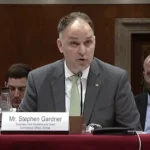Good Call, Bad Call, Awful Call.
Hawaiian Airlines has a smart new promotion. I have no idea if it’s exclusive with Hawaiian, but it’s a great idea. To begin my upcoming trip to the NARP meeting in Washington, DC, I booked an economy seat on a Hawaiian flight to Seattle.

Yesterday I got an email from Hawaiian asking if I wanted to bid on an empty seat in first class. This seems like a great way to generate additional income for the airline: however many dollars is the winning bid, plus another economy class ticket sold for someone to occupy the now-empty seat in economy class. I bid $205.
By contrast, if you’re booked on an American Airlines flight and used Aadvantage miles to buy your Economy Class ticket, they will not sell you an upgrade to First Class. It’s company policy. I had that experience on an American flight to Los Angeles a couple of years ago. They refused to sell me an upgrade, thereby losing not only that additional income, but they lost the revenue from a stand-by passenger who would have happily paid for my economy seat. How does that make any sense at all?
Finally, the Maui News ran a story a couple of days ago reporting that a new survey showed U.S. airlines improving in on-time performance, lost baggage and the bumping of passengers. Typically, up-ticks in performance categories like these result in a similar improvement in the public’s perception of both the industry as a whole and of specific airlines.
It’s probably a good thing that the survey was conducted before news reports of an incident aboard a United Airlines flight yesterday. The flight from Chicago to Louisville was full and after everyone had boarded, there was an announcement that four United employees had to get to Louisville, so four passengers would have to give up their seats.
No one volunteered, so—long story short—one man ended up being literally dragged screaming up the aisle. Henceforth, if any of us are looking for an example of a public relations disaster, this incident will do nicely for many years to come.



I will never travel with United from now on. United Airlines may have arguably had the “right” to do what they did (even that’s a stretch argument), but that doesn’t mean they should have done what they did.
And even if we forget how this was all handled, what airline has a policy that bumps paying passengers in place of the airline’s employees and actually enforces that rule? That’s an atrocious policy and evidence of what a horrible company United is.